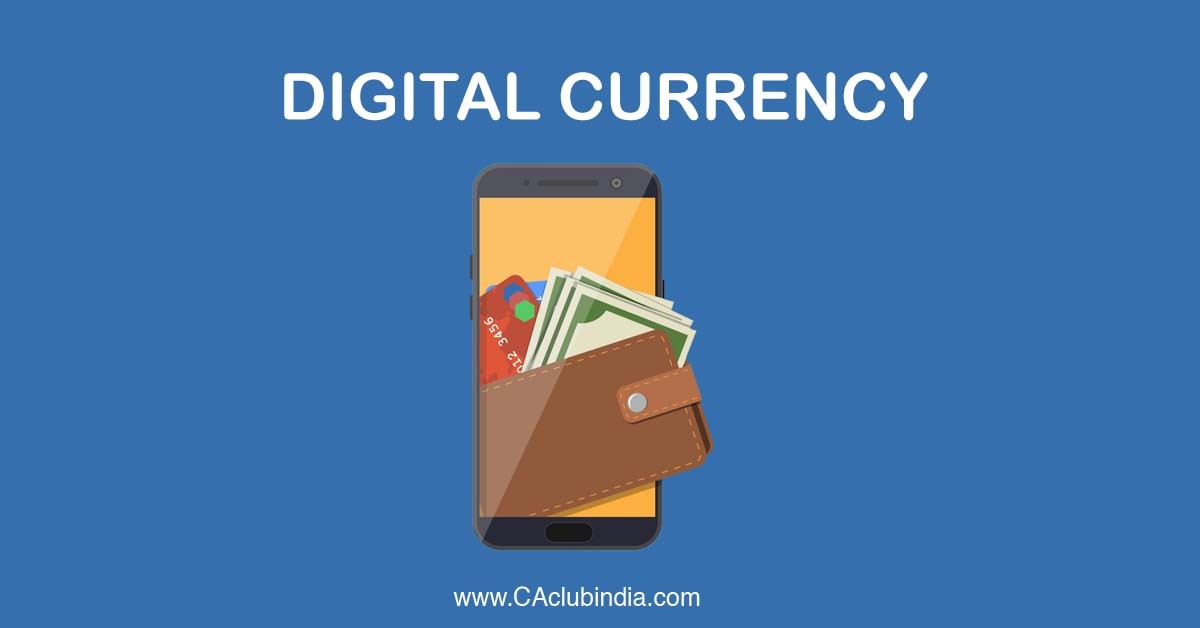The RBI Deputy Governor T. Rabi Shankar stated that the RBI is planning to introduce Digital Currency in India through phased implementation. The Central Bank Digital Currency proposed to be introduced would be a legal and legitimate form of virtual coin that will be on par with the real money. He further stated that the Central Bank central bank is framing considerations for the legal framework to be put into place so that the CBDC can coexist with cash and digital payment methods in India.
It may be noted that India is not alone on this road to Digital Currency. Several countries like the United States, the European Union and China are also working towards introducing their own Digital Currency. Infact, Bahamas is ahead in this league as it has already introduced its own Digital Currency in October 2020.

What Exactly is Central Bank Digital Currency (CBDC)?
In simple terms CBDC is a cash in digital form. It will be held in Digital Wallet and shall be monitored by RBI, which is the Central Bank in India. What makes it different from the Cryptocurrencies like Bitcoin, Ethereum etc. is that it is regulated and will be considered as money or currency.
Central Bank Digital Currency over Physical Cash?
In an economy in which Physical Cash has a predominance, it is very unlikely that RBI will mandate CBDC over Physical Cash. However, it will definitely take steps to encourage people to use CBDC over Physical Cash. It is also very likely that both CBDC and Physical Cash may coexist in the economy and people who like to withdraw cash can do so or can opt to convert their bank deposits into CBDC.
Why are Central Banks keen on introducing Digital Currency?
There is an increasing demand for Digital Currency and the Central Banks want to encash it. They also believe that the cost of issuing the Digital Currency is far lower than the cost of printing and distributing physical cash. It could also be said the cost of introducing Digital Cash is nearly zero as creation and distribution is done virtually.
Another strong reason could be to curb the use of physical cash. Physical cash transactions are difficult to track and thereby are more prone to creation of black money. This is very unlikely to happen with Digital Currency as it can be closely monitored by the Central Bank. This feature has also raised concerns as privacy would be evaded.
What are the Risks involved in introducing Digital Currency?
Central Banks fear that people may begin withdrawal of money from their bank accounts as and when digital currency becomes more popular. People could also convert their deposits into digital cash and this would affect the amount of loans created from banks. Central Banks may also have to introduce fresh cash into banks to ensure the ability of banks to create loans is not affected by depositors’ rush to digital currencies. However, this is temporary. In the long run, with more and more people using digital currency and loans being created electronically by banks, the difference could turn out not to be very low as both would be in the digital form of the same currency.
Cyber Attacks are another cause of concern in introducing Digital Currency. The Central Banks should ensure that there is a strong mechanism to prevent cyber attacks and provide a secure network for digital currency transactions.
Introduction of Digital Currency would have a significant impact on the monetary policy and the banking system. It would largely change the way the business is conducted and the economy is run. Therefore, carefully examining the pros and cons before the introduction of Digital Currency is needed.







 CAclubindia
CAclubindia
